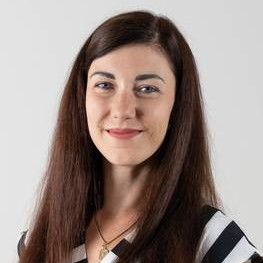Nataliia Pavlyk
Biography Narrative
PhD Candidate, Pontifical University of St. Thomas Aquianas
Nataliia is a PhD candidate in philosophy and is currently pursuing an MAS degree at the Bossey Ecumenical Institute (part of the World Council of Churches and attached to the University of Geneva). In 2019, she received a prestigious Russell Berrie Fellowship to study interreligious dialogue at the Pontifical University of St. Thomas Aquinas in Rome. Since 2013, Nataliia has been the head and founder of the NGO “The Oriental Studies Circle”. The main focus of its activity is academic research and non-formal education in interreligious and intercultural dialogue. Over the years, the organization has implemented over 50 interfaith projects to promote tolerance to oriental traditions, as well as reconciliation between West and East. Nataliia was a member of the International Working Group on Preventing Violent Extremism in Belgium and worked with unaccompanied minor refugees empowering Christian-Muslim dialogue in Austria. In 2017, due to her academic interest in Asian studies, she was invited by the Ministry of Foreign Affairs to take part in the MIRAI Programme in Japan. Recently she has been conducting research for her PhD thesis on Jainism in India and Canada.

